Today is my father’s birthday.
Or would be if he was still with us.
Dad gave me three important things:
an eye for photography,
love of all kinds of music,
hair that doesn’t go grey without a fight.
The latter is the least important, but I feel very lucky to still have most of the same straight brown hair I’ve had most of my life. There are a few wisps of grey around the edges, but for the most part, like my dad I have kept my original colour.
Music filled our house: musicals, which my mom adored and I love too; my father gave us everything else. Mahalia Jackson, all the jazz greats, and opera on Sundays (except if there was a baseball game). He was the first to bring home Janis Joplin, the Rolling Stones, Crosby, Stills & Nash. We listened to Bill Monroe and the Bluegrass Boys, dixieland jazz, and our favourite local, Joan Baez.
My father taught me to see light and shapes in nature, taking me out for photography expeditions. We bracketed shots to understand how the focal points and f-stops altered images. Afterwards we spent hours in the darkroom, pouring out the chemicals and flipping on the red light to create magic with negative film. We ducked laundry lines that criss-crossed the basement with clipped rolls of drying negatives and reverse paper images.
But the thing about my dad that everyone remembers most, besides his quiet manner, or his face always behind the camera, is his job. Or what everyone guessed his job was. He worked for The Government. He had a Classified job which, rather embarrassingly, I misunderstood for too long as the name of the profession, like saying you are a plumber or a teacher. His job was an actual MYSTERY.
As a young kid, your family is what is you know. Maybe your starter friends’ families are different than yours, but all of them are a given, and I, at least, never questioned any of it. Some families didn’t have fathers. Some were just one person, or two of the same kind. Ours was the three of us. Each family had its own shape, and I accepted them all.
But then I went to school where kids asked questions about my family. At their more traditionally shaped houses, the parents asked me what my father did, and I noticed the raised eyebrows when I said my father’s job is Classified. No one ever asked what my mother did, although she worked the entire time I was growing up. After a few of the father questions, I hurriedly followed up the answer by describing my mother’s job, hoping to distract them.
The thing is, it didn’t bother me not to know. A ‘Classified Job’ was still just a job: it didn’t define him.
I knew a few things about his work. After working in the family photography business, he had been an aerial photographer at an airbase in Virginia. His job now had to do with photography too, as he had stains on his hands from the darkroom chemicals. He also worked bonkers hours: he carpooled 30-40 minutes to reach San Francisco by 5 am. Then he was back home by about 9 am, and would nap for an hour or so before having the rest of the day free.
He took classes at the local junior college, he did some of the cooking, and he often had a part-time second job. He was home with me after school; my mom at her work all day. Most of my daytime memories are hanging out with my dad: building lego with our imaginations, drawing and colouring, making funny snacks, and him encouraging me as I struggled with homework.
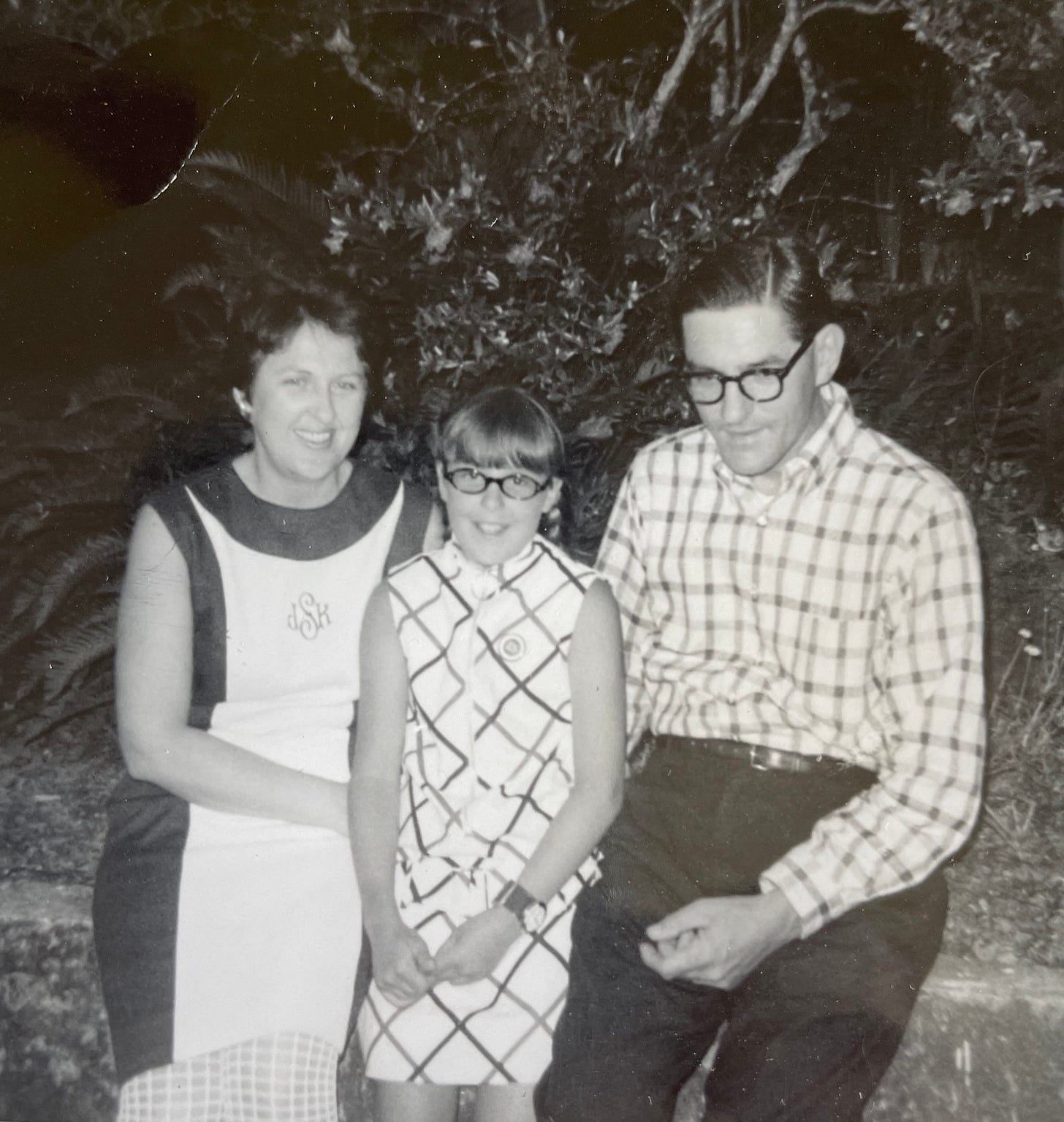
When I was in middle school he often drove on local field trips. A dad was a genuine novelty—the teachers liked having a male around (even though he was a disciplinary pussycat) and he was an interesting distraction for everyone else. The fact that my dad had a mystery job now was cool.
Periodically the Government investigated our family, to make sure we weren’t selling secrets or something. A serious man in a suit came to our house and talked to my parents while I was sent to another room. Some of their friends would get interviewed too. After the investigation was finished, the friends came over and discussed all the questions and their answers. For awhile we believed our phone was being tapped. Our more cheeky friends would talk directly to the imaginary person listening, relating salacious details from a possibly made-up story. On the other end of the phone, my mother nervously laughed.
Once I got to high school, my new friends were endlessly curious about what my father could possibly be up to. A few of the boys in particular spent hours discussing the possibilities: Was he a spy? Or a secret agent? Did he meet Russian undercover citizens in clandestine locations? Their curiosity made sense; it was near the end of the Vietnam War, and Watergate was unfolding. We questioned everything, particularly related to our government. The idea of my father’s job was an outlet for imaginations when the boundaries of normal structures were crumbling with each day’s news.
Although my parents were quite left-leaning—anti-war and anti-Nixon—my father still believed the work he was doing was the right thing to do.
Until.
Until they abruptly shut down his section of the organisation.
My father was given an option: We could either move immediately to Washington D.C. for his new uncertain assignment. Or he could take an early, reduced retirement, and we could stay in California.
We had a family meeting. My parents deliberated. I had two more years of high school. My father was increasingly uncertain about working for The Government. Washington D.C. was the current centre of our government’s mayhem. California was a lovely liberal oasis.
We stayed put.
My mother got another job closer to home. My father’s part-time jobs became full-time. I was old enough to look after myself and was often at school until dinnertime anyway. Now that I finally wanted to know what his job has been, he couldn’t talk about it, for at least another 10 years.
Over the years little bits started to dribble out from family friends. Many of them had taken similar Classified Jobs after leaving home or graduating from university. It was peak Cold War years and everyone spied on everyone else. The best jobs were in “intelligence”. My parent’s friends knew what my father did, after all. I did not.
When I saw high school friends after we’d gone off to University they would always ask if I’d found out. Still the answer was no.
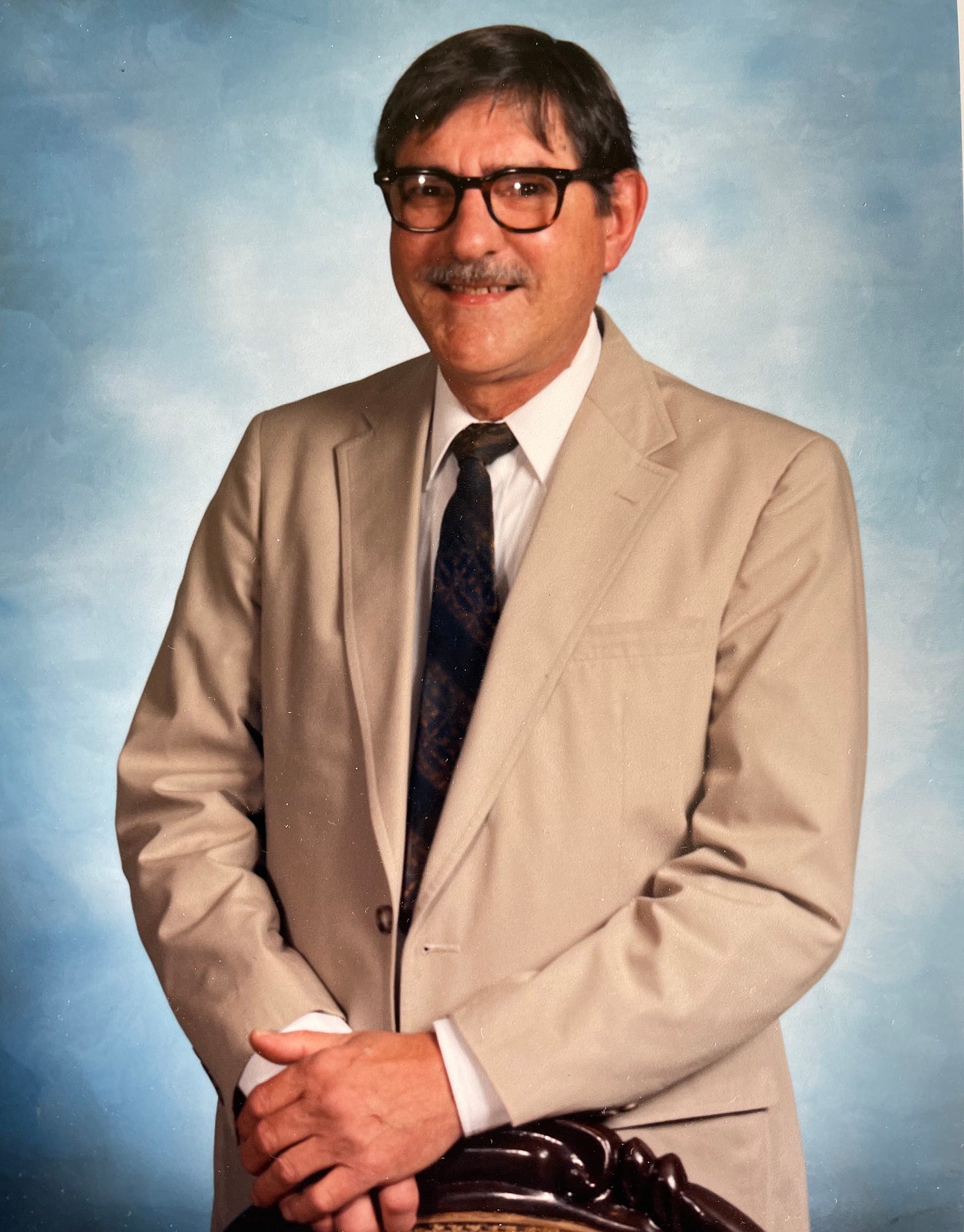
I saw my father less frequently as my own family grew. The subject of his long-past job was hardly on my mind. There were his grandchildren to play with, his health to watch, my mother’s increasingly erratic behaviour to manage.
One time he answered a few questions about his job simply, and then changed the subject as easily as he had my whole life.
And then he was gone.
I’d missed my chance.
A few years later, my mother filled in some details:
He did take photos: he photographed mail coming into or leaving San Francisco Post Office. Then he developed the film and sent it on.
They had to work before the post office opened. That was why he had gone to work and returned so early.
He believed that what he was doing was important for national security.
Not everyone agreed. His organisation had been a part of the CIA which, unknown to the Post Office, reviewed mail before opening hours. The purpose was to gain intelligence pertaining to the Soviet Union and China, although eventually it extended to US civil-rights activist citizens as well.1
I’m sorry I didn’t get to ask him about that latter part, although I’d like to think it would have been hard for him to be focusing on our citizen activists, as liberal as he was.
So now I knew. It wasn’t glamorous or important work, and he wasn’t a spy, or of great significance in his agency. I did find a performance evaluation in his paperwork warning him that he should stop going to a certain club as it was known to harbour possible communist sympathisers. Good for you, Dad, continuing to live the life you wanted.
His job didn’t define him. His role as a father and a husband did. His ability to find light in the landscape and joy in the notes of a song did. All those things mattered to him. And to me. Those were good lessons.
He was a quiet man. He was a good man. And I still miss him.
As always, thanks for reading!
Of course I always have questions for you too!
Let me know your favourite stories about your father!
Is there anything that surprised you about his job when you got older?
Did your family differ from those around you and if so, or if not, was that ever an issue for you?
See you next time!!!
xx Sabrina
https://en.wikipedia.org/wiki/Church_Committee

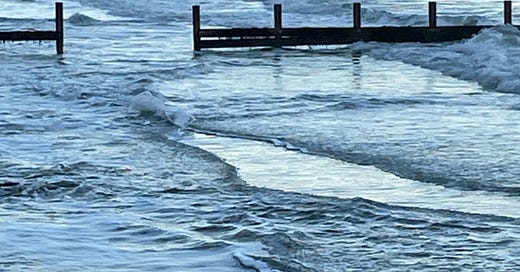



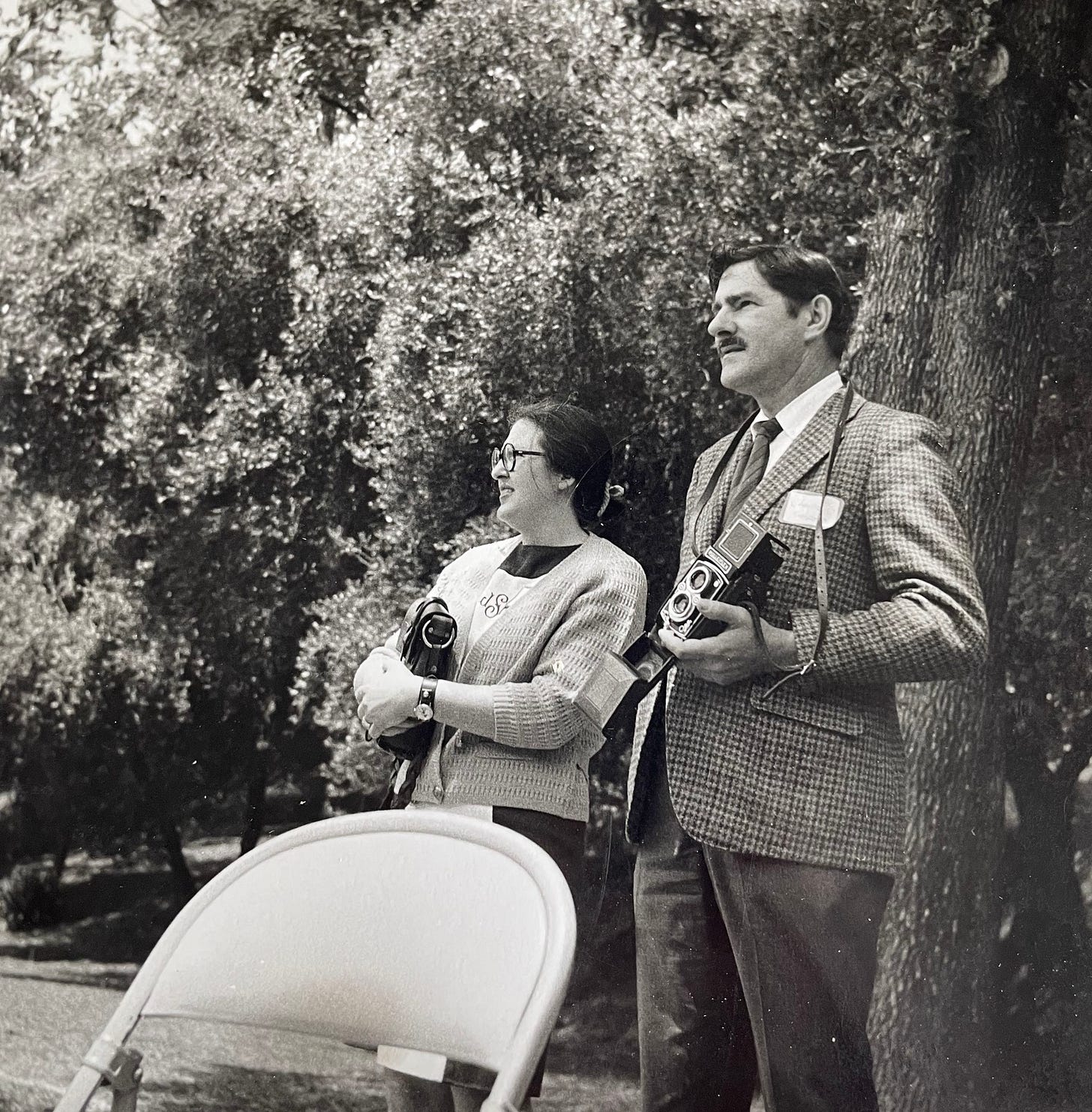
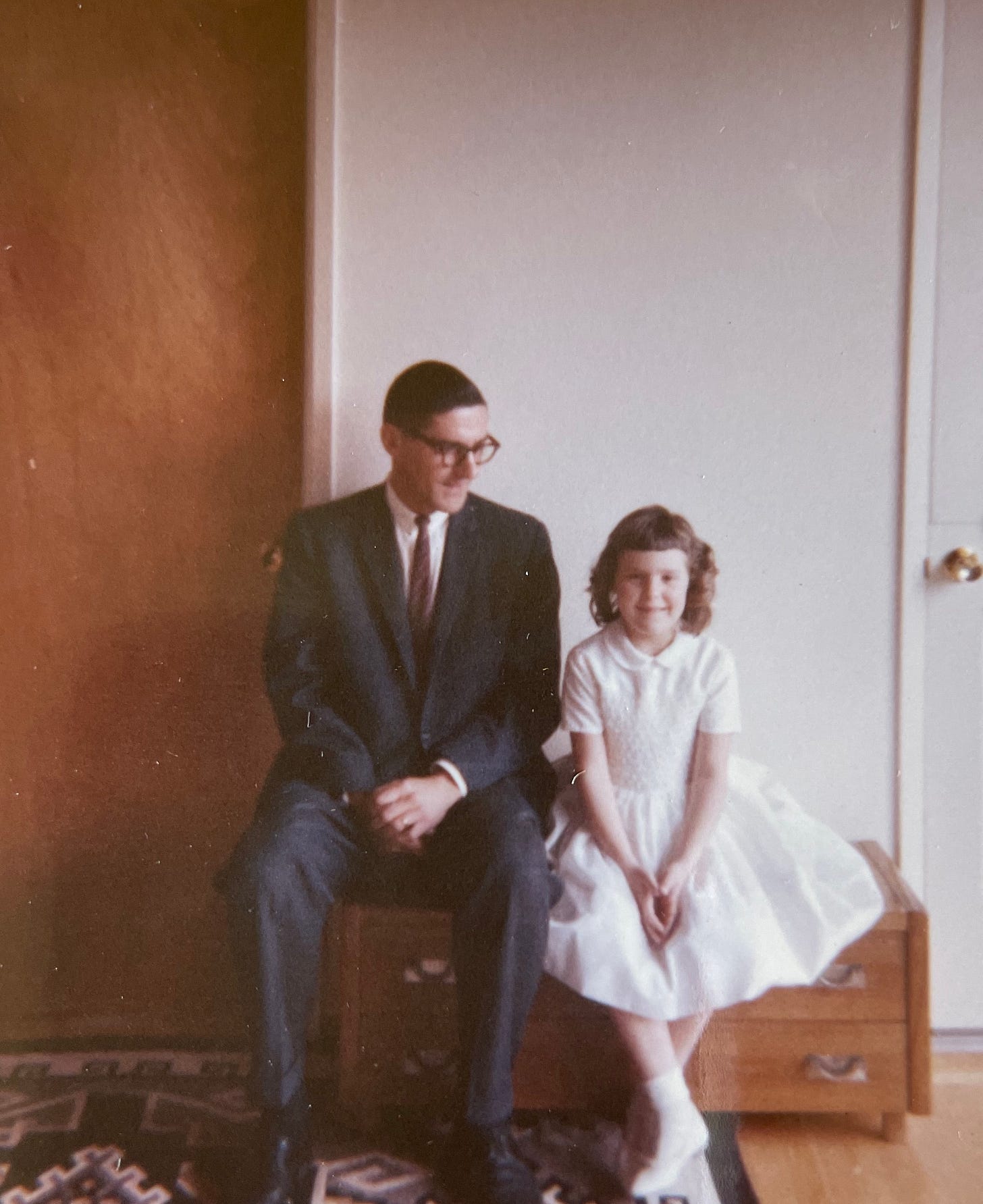
Fascinating, and lovely. Thanks, Sabrina.
As a first-generation American (my mother was born in Italy, though her family emigrated to a steel town outside Pittsburgh when she was still an infant, and my father was born and grew up in Brazil, though his father was Austrian and his mother Scottish), I was acutely conscious of how different my parents were from the parents of my childhood friends. They were *weird*; my father still spoke with some combination of a Brazilian/Austrian accent (though it took me years to realize this), and my mother was a doctor - an extraordinary accomplishment for a woman born to immigrant parents in 1923. Back then I wished that our family could be "normal," like the bland families in the sitcoms on TV.
Now that I'm old(er) and my parents are both gone, I find myself taking pride in EXACTLY the things that embarrassed me about them when I was a kid: my dapper father's continental/South American exoticism; my mother's insistence on the importance of her career, despite the endless sexism she faced in her profession... all of it. I wish I'd had the chance to tell them.
That was such a beatiful memoir. Thank you for its poignancy and love.
I suspect that our Dads were the family backbones. Mine was. Staunch, gentle, lover of music, wise, intellectual, cried when things moved him, whistled awfully off-key, loved dogs and reading, adored the cricket. Loved Mum with a passion. I've been missing him for 23 years.